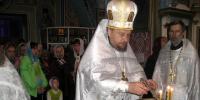Модальные глаголы для выражения предположений и догадок. Modals of Speculation
Конструкция “could have” используется в том случае, когда речь идет о чем-то, что человек мог сделать, но не сделал.
Why did you go to a hotel when you were in Paris? You could have stayed with Patricia
.-
Почему ты поехал в отель, находясь в Париже? Ты бы мог остановиться у Патрисии.
I could have gone to Cambridge University but I preferred Harvard.
-
Я мог бы поступить в Кембридж, но поступил в Гарвард.
Mary could have married Karl but she didn`t want to
.-
Мэри могла бы выйти замуж за Карла, но она не захотела этого делать.
I was so tired, I could have slept for a month.
-
Я был настолько уставший, что мог бы проспать целый месяц.
Часто использование конструкции “could have” подразумевает недовольство.
You could have phoned your father to let him know .- Ты мог бы позвонить своему отцу, чтобы сообщить ему об этом.
The boys could have helped me instead of staring .- Мальчики могли бы помочь мне, вместо того чтобы пялиться.
Данная конструкция используется также, чтобы сообщить о чем-то, что мы не смогли сделать.
I couldn`t have managed without your help .- Я бы не справился без твоей помощи.
I couldn`t have got the job. I don’t speak German .- Я не смог получить работу. Я не говорю по-немецки.
She couldn`t have enjoyed herself more. It was a great day .- Она прекрасно провела время. Это был отличный день.
Данная конструкция используется также в том случае, если вы высказываете предположение о событии, которое уже произошло. В данной ситуации можно также употребить “may have” или “might have”.
Linda could have taken the earlier bus .- Возможно, Линда села в автобус раньше.
Simon could have called her .- Возможно, Саймон звонил ей.
The girls could have overheard what we said .- Девочки могли услышать то, о чем мы разговаривали.
Когда мы высказываем предположение о произошедших событиях, мы можем использовать также “can have”, но в вопросительных или отрицательных предложениях и с такими словами как “hardly”, “never” и “only”.
Can he have forgotten about our meeting? - Может быть он забыл о нашей встрече?
He can`t have seen us .- Он не мог нас видеть.
They can hardly have thought that I was interested in that job. - Они бы точно не подумали, что я заинтересован в этой работе.
Можно использовать “could have”, чтобы указать на события, которые не произошли.
You could have broken your neck, Tom .- Ты мог сломать себе шею, Том.
Lucas could have hurt somebody, when he threw a bottle out of the window .- Лукас мог бы поранить кого-то, когда выбрасывал бутылку из окна.
I could have done better in the quiz if I`d worked harder .- Я бы мог сдать тест лучше, если бы я больше занимался.
Dave was lucky. He could have hurt himself when he fell . –Дэйву повезло. Он мог бы пораниться, когда упал.
Данная конструкция употребляется также, когда мы говорим о возможных ситуациях в настоящем.
I could have been earning a lot as an actor but the work was hard .- Я мог бы зарабатывать намного больше в качестве актера, но работа была слишком сложной.
They could have been the leading students now if they had taken his advice .- Они могли бы быть лучшими студентами сейчас, если бы последовали его совету.
Put
in
"must" or
"can"t"
1. You
have
been
travelling
all
day
. You
must
be
tired
.
2. That
restaurant
must
be
very
good
. It
is
always
full
of
people
.
3. That
restaurant
can"t be
very
good
. It
is
always
empty
.
4. I am
sure
I gave
you
the
key
. You
must
have
it
. Have
you
looked
in
your
bag
?
5. You
are
going
on
holiday
next
week
. You
must
be
looking
forward
to
it
.
6. It
rained
every
day
during
their
holiday
, so
they
can"t have
had
a very
nice
time
.
7. Congratulations
on
passing
your
exam
. You
must
be
very
pleased
.
8. You
got
here
very
quickly
. You
must
have
walked
very
fast
.
9. Bill
and
Sue
always
travel
business
class
, so
they
can"t be
short
of
money
.
Complete
each
sentence
with
a verb(one
or
two
words) in
the
correct
form
.
1. I"ve
lost
one
of
my
gloves
. I must
have
dropped
it
somewhere
.
2. They
haven"t lived
here
for
very
long
. They
can"t know
many
people
.
3. Ted
isn"t at
work
today
. He
must
be
ill
.
4. Ted
wasn"t at
work
last
week
. He
must
was
ill
.
5. (the
doorbell
rings) I wonder
who
that
is
. It
can"t be
Mary
. She
is
still
at
work
at
this
time
.
6. Sarah
knows
a lot
about
films
. She
must
go
to
the
cinema
a lot
.
7. Look
. James
is
putting
on
his
hat
and
coat
. He
must
go
out
.
8. I left
my
bike
outside
the
house
last
night
and
now
it
has
gone
. Somebody
must
has
stolen
it
.
9. Amy
was
in
very
difficult
situation
when
she
lost
her
job
. It
can"t was
easy
for
her
.
10. There
is
a man
walking
behind
us
. He
has
been
walking
behind
us
for
the
last
twenty
minutes
. He
must
be
pursuing
us
.
Read
the
situation
and
use
the
words
in
brackets
to
write
sentences
with
"must" and
"can"t have"
1. The
phone
rang
, but
I didn"t hear
it
.
I must
have
been
asleep
.
2. Sue
hasn"t contacted
me
.
She
can"t have
got
my
message
.
3. The
jacket
you
bought
is
very
good
quality
.
It
must
be
very
expensive
.
4. I haven"t seen
the
people
next
door
for
ages
.
They
must
have
gone
away
.
5. I can"t find
my
umbrella
.
I must
have
left
it
in
the
restaurant
last
night
.
6. Dave
, who
is
usually
very
friendly
, walked
past
me
without
speaking
.
He
can"t have
seen
me
.
7. There
was
a man
standing
outside
the
cafe
.
He
must
have
waited
for
somebody
.
8. Liz
did
the
opposite
of
what
I asked
her
to
do
.
She
can"t have
understood
what
I said
.
9. I was
woken
up
in
the
night
by
the
noise
next
door
.
The
neighbours
must
have
had
a party
.
10. The
light
was
red
, but
the
car
didn"t stop
.
The
driver
can"t have
seen
the
red
light
.
// 6 Comments
Продолжаем подробное исследование модальных глаголов, и сегодня поговорим о том, как с их помощью можно выразить предположение (deduction - помните, дедукцию Шерлока Холмса?). Мы используем модальные глаголы, чтобы показать возможность или вероятность какого-то действия, которое произойдет или не произойдет в будущем. При этом мы рассматриваем степень уверенности.
- 100% — это определенность (CERTAINTY) – используем модальные глаголы will, be certain to
- 95 – 100% — это предположение (DEDUCTION), для чего потребуются глаголы must, can’t
- 80% — ожидание (EXPECTATION) – глаголы should, shouldn’t, ought to, ought not to, be likely to, be unlikely to
- 30 -70% — неуверенность (UNCERTAINTY) — may, may not, might, might not, could
- 0% — определенность (CERTAINTY) — won’t
Определенность
Google shortcode
Когда мы уверены в будущем действии, мы используем will и be certain t o .
- Don’t worry, I will help you with this problem. – не беспокойся, я обязательно помогу тебе с этой проблемой
- He is certain to apply for promotion – он обязательно обратится с просьбой о продвижении
Когда мы уверены, что что-то не произойдет, мы используем won’t
- The weather is nasty and we won’t go to the country – погода ужасная, и мы не поедем за город.
Предположение
Если мы хотим показать, что что-то является определенным, потому что это следует логически, мы используем must (должно быть) или can’t. Примите во внимание, что при отрицательном предположении используется can’t (не может быть), а не глагол mustn’t (который выражает запрет — ).
- She must be at work now. It is 16:00 now. – она, должно быть, на работе, сейчас 4 часа.
- Mom is not answering her phone. She must be out. – мама не берет трубку, должно быть, она вышла.
- You can’t have deceived me – I don’t believe that. – не может быть, чтобы вы меня обманули – я не верю этому.
Ожидание
Когда мы ожидаем, что что-то произойдет, мы используем should, ought to, be likely to
- The train should arrive at the mentioned time – поезд должен прибыть в указанное время.
- Our project is likely to succeed – наш проект, по-видимому, увенчается успехом
- It ought to bring more profits – это, вероятно, принесет больше доходов
- My salary is likely to rise this year – вероятно, моя зарплата вырастет в этом году
(Примечание: «ought to » используется в формальном контексте, и его не так часто встретишь в разговорном английском как «should » или «be likely to «.)
Если мы не ожидаем, что что-то произойдет, мы используем shouldn’t, ought not to, be unlikely to
- Purchasing necessary food shouldn’t take long – покупка необходимых продуктов не займет много времени.
- She is unlikely to meet me today. – маловероятно, что она встретится со мной сегодня.
- He ought not help that man – он не должен помогать этому человеку.
Неопределенность
May, might или could обычно используются, когда у нас нет уверенности в том, что что-то произойдет.
- I might be able to lend you money next month – возможно, я смогу одолжить вам денег в следующем месяце
- She may have to leave her children with her mother – возможно, ей прилется оставить детей у матери.
- It could be hard to convince him to go with us. – возможно, будет трудно убедить его пойти с нами.
Отрицательными формами являются may not или might not. «Could not» не используется в этом значении. Это сочетание выражает способность в прошлом ().
- He might not agree with you – возможно, он с тобой не согласится.
- I may not be able to come to your place today – возможно, я не смогу прийти к тебе домой сегодня.
Вероятность в прошлом
Для обозначения вероятности действия в прошлом предложение строится по следующей схеме:
- She must have been at the meeting when I called her — должно быть, она была на встрече, когда я позвонил ей.
- You can’t have eaten the whole cake. – не может быть, чтоб ты съел весь торт.
- They might have left for London last week. – наверное, они уехали в Лондон на прошлой неделе.
Мы не зря в самом начале упомянули Шерлока Холмса, ведь он был настоящим мастером дедукции — логических предположений и выводов. Предлагаем вам небольшую презентацию для закрепления понимания, как выразить предположение в настоящем и прошедшем (за которую выражаем отдельную благодарность учителю английского языка David Mainwood).
(Для удобства презентацию можно открыть в полноэкранном режиме)
Study this example: |
|||
| You can use must
to say that you believe something is certain:
. You"ve been travelling all day. You must be tired. (Travelling is tiring and you"ve been travelling all day, so you must be tired.) . "Jim is a hard worker." "Jim? You must be joking. He doesn"t do anything." . Carol must get very bored in her job. She does the same thing every day. . I"m sure Sally gave me her phone number. I must have it somewhere. You can use can"t to say that you believe something is not possible: . You"ve just had lunch. You can"t be hungry already. (People are not normally hungry just after eating a meal. You"ve just eaten, so you can"t be hungry.) . They haven"t lived here for very long. They can"t know many people. Study the structure:
|
For the past we use must have (done)
and can"t have (done)
. Study this example:
 Martin and Lucy are standing at the door of their friends" house. They have rung the doorbell twice, but nobody has answered. Lucy says: They must have gone out. |
||||
| .
I didn"t hear the phone. I must have been
asleep. . "I"ve lost one of my gloves." "You must have dropped it somewhere." . Sue hasn"t contacted me. She can"t have got my message. . Tom walked into a wall. He can"t have been looking where he was going. Study the structure:
You can use couldn"t have instead of can"t have : . Sue couldn"t have got my message. . Tom couldn"t have been looking where he was going. |
Exercises
Put in must
or can"t
.
1 You"ve been travelling all day. You must
be tired.
2 That restaurant ___________ be very good. It"s always full of people.
3 That restaurant ___________ be very good. It"s always empty.
4 I"m sure I gave you the key. You ___________ have it. Have you looked in your bag?
5 You"re going on holiday next week. You ___________ be looking forward to it.
6 It rained every day during their holiday, so they ___________ have had a very nice time.
7 Congratulations on passing your exam. You ___________ be very pleased.
8 You got here very quickly. You ___________ have walked very fast.
9 Bill and Sue always travel business class, so they ___________ be short of money.
Complete each sentence with a verb (one or two words) in the correct form.
1 I"ve lost one of my gloves. I must have dropped
it somewhere.
2 They haven"t lived here for very long. They can"t know
many people.
3 Ted isn"t at work today. He must _____________ ill.
4 Ted wasn"t at work last week. He must _____________ ill.
5 (the doorbell rings)
I wonder who that is. It can"t _____________ Mary. She"s still at work at this time.
6 Sarah knows a lot about films. She must _____________ to the cinema a lot.
7 Look. James is putting on his hat and coat. He must _____________ out.
8 I left my bike outside the house last night and now it has gone. Somebody must _____________ it.
9 Amy was in a very difficult situation when she lost her job. It can"t _____________ easy for her.
10 There is a man walking behind us. He has been walking behind us for the last twenty minutes. He must _____________ us.
Read the situations and use the words in brackets to write sentences with must
have and can"t have
.
Key.
3 It must have been very expensive.
4 They must have gone away.
5 I must have left it in the restaurant last night.
6 He can"t have seen me. or He couldn"t have seen me.
7 He must have been waiting for somebody
8 She can"t have understood what I said. or She couldn"t have understood what I said.
9 I must have forgotten to lock it.
10 The neighbours must have been having a party.
11 The driver can"t have seen the red light. or The driver couldn"t have seen ...
1 The phone rang, but I didn"t hear it. (I / asleep)
I must have been asleep.
2 Sue hasn"t contacted me. (she / get / my message)
She can"t have got my message.
3 The jacket you bought is very good quality. (it / very expensive)
4 I haven"t seen the people next door for ages. (they / go away)
__________________________________
5 I can"t find my umbrella. (I / leave / it in The restaurant last night)
__________________________________
6 Dave, who is usually very friendly, walked past me without speaking. (he / see / me)
__________________________________
7 There was a man standing outside the café. (he / wait / for somebody)
__________________________________
8 Liz did the opposite of what I asked her to do. (she / understand / what I said)
__________________________________
9 When I got back to my car, the door was unlocked. (I / forget / to lock it)
__________________________________
10 I was woken up in the night by the noise next door. (the neighbours / have / a party)
__________________________________
11 The light was red, but the car didn"t stop. (the driver / see / the red light)
__________________________________
Peter looks pale. He must
be ill. – Питер выглядит бледным. Должно быть, он заболел.
He must
love her. – Он, вероятно, любит ее.
2. В значении удивления, сомнения, что действие выраженное , совершается или будет совершаться, употребляется модальный глагол can’t (не может быть, чтобы ) как отрицательная форма от must , mustn’t не употребляется.
He can’t
be poor. Have you seen his car? – Не может быть, чтобы он был бедным. Ты видел ее машину?
That can’t
be the right answer. – Не может быть, чтобы это был правильный ответ.
3. Когда выражается сомнение по поводу того, что действие совершается в момент речи, в английском языке употребляется конструкция must/can’t + be + … -ing .
Where is she? – She must be waiting
for you in the garden. – Где она? – Она, должно быть, ждет вас в саду.
He can’t be reading
because his book is in the garden. – Не может быть, чтобы он читал, потому что его книга в саду.
4. Модальный глагол can также употребляется в вопросах, выражающих возможность совершения действия. Дополнительно о модальном глаголе .
Can
you call a taxi? – Вы можете вызвать такси?
Can
you speak English? – Вы говорите по-английски?
Употребление must have … и can’t have…
5. Конструкция must/can’t have + past participle (должно быть, возможно, наверняка ) употребляется для выражения предположения, которое относится к прошедшему времени.
Indonesia must have been
a hot country. – Индонезия, должно быть, жаркая страна.
They can’t have arrived
yet. It’s too early. – Они, наверняка, еще не приехали. Еще слишком рано.
Вместо конструкции can’t have … может употребляться модальный глагол couldn’t have… . Could придает суждению менее категоричную окраску.
6. Can/could have… (неужели ) также употребляются в вопросах, касающихся вероятности совершения действия в прошлом времени.
Can he have said
it? – Неужели он сказал это?
Could she have passed
her driving test? – Неужели она сдала экзамен по вождению?



